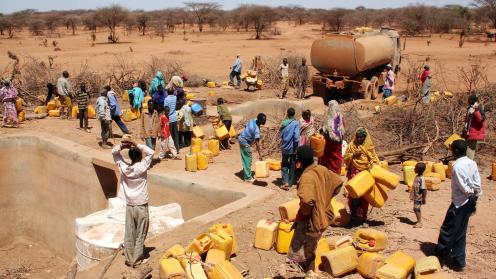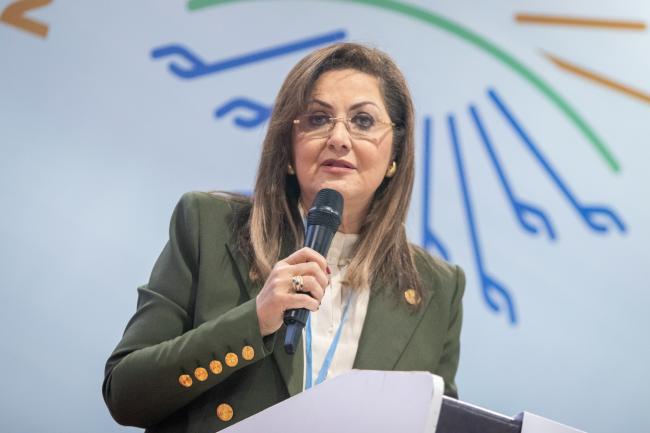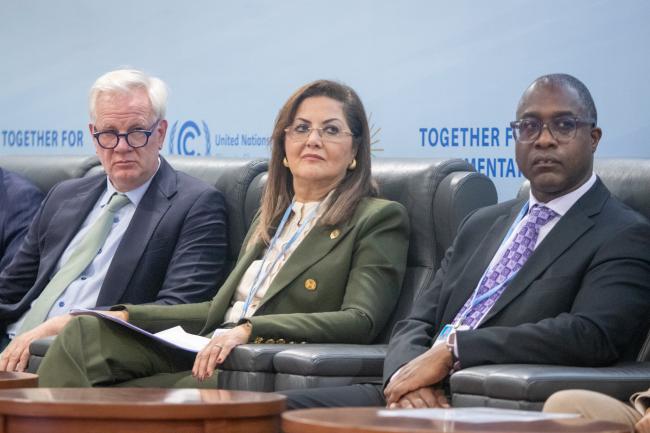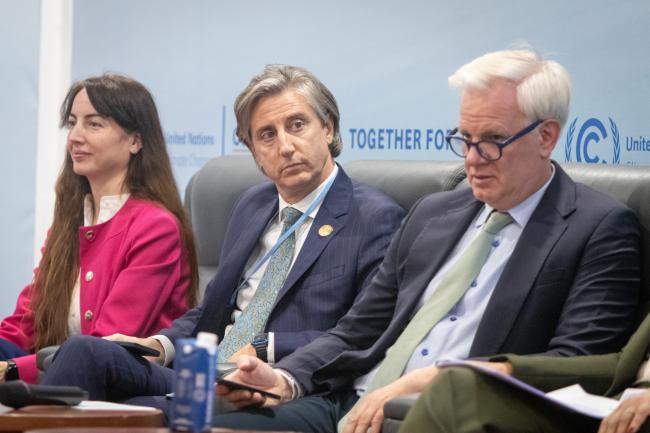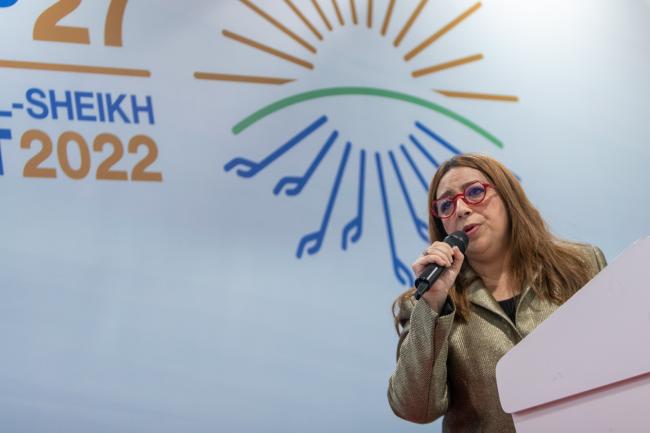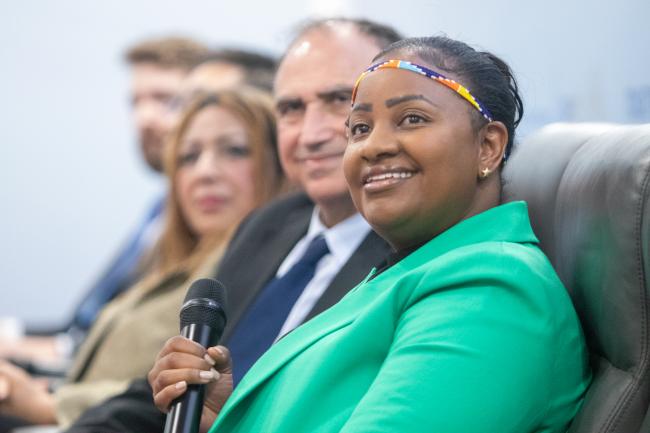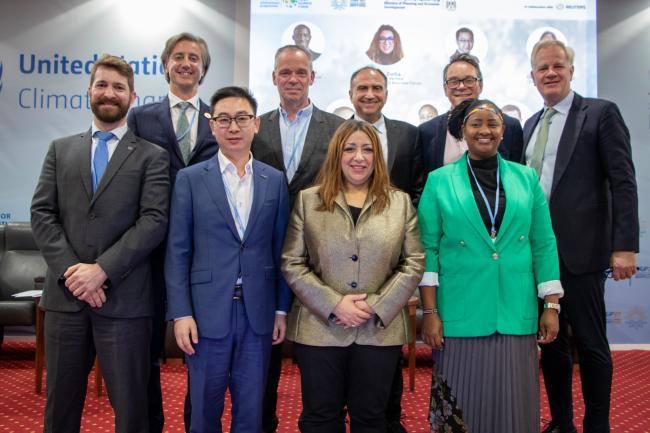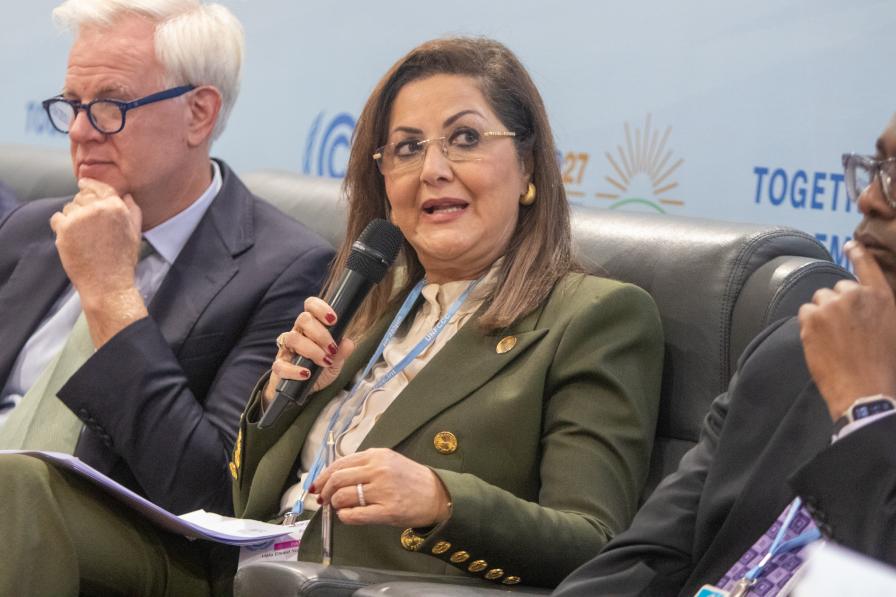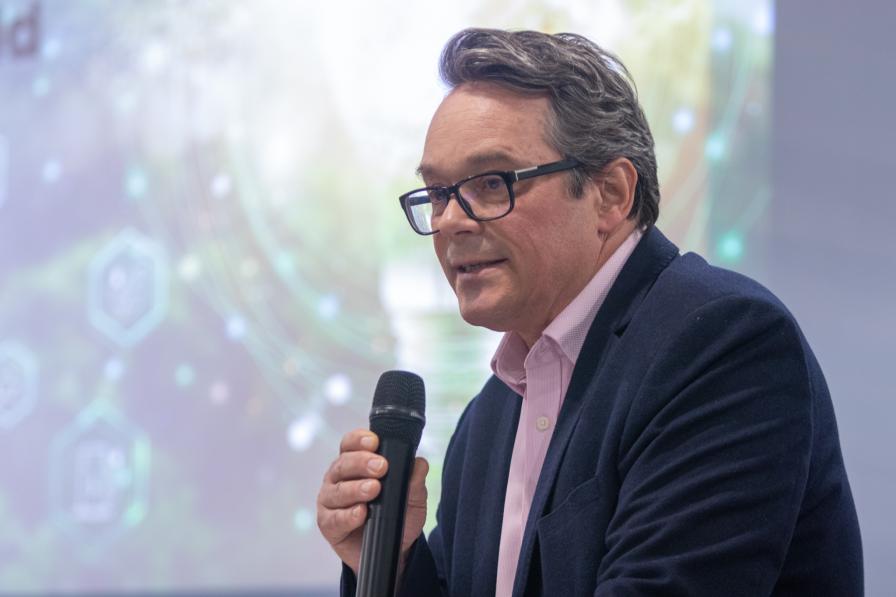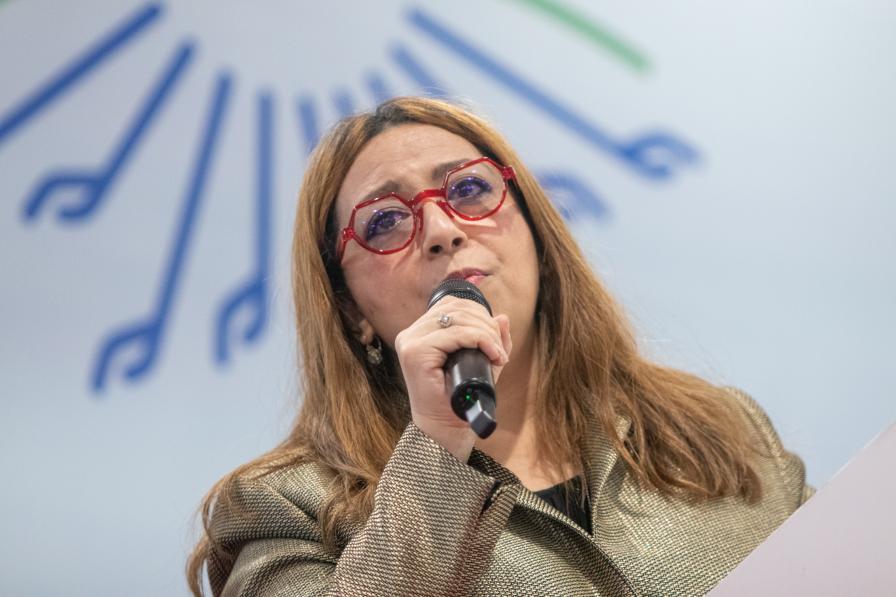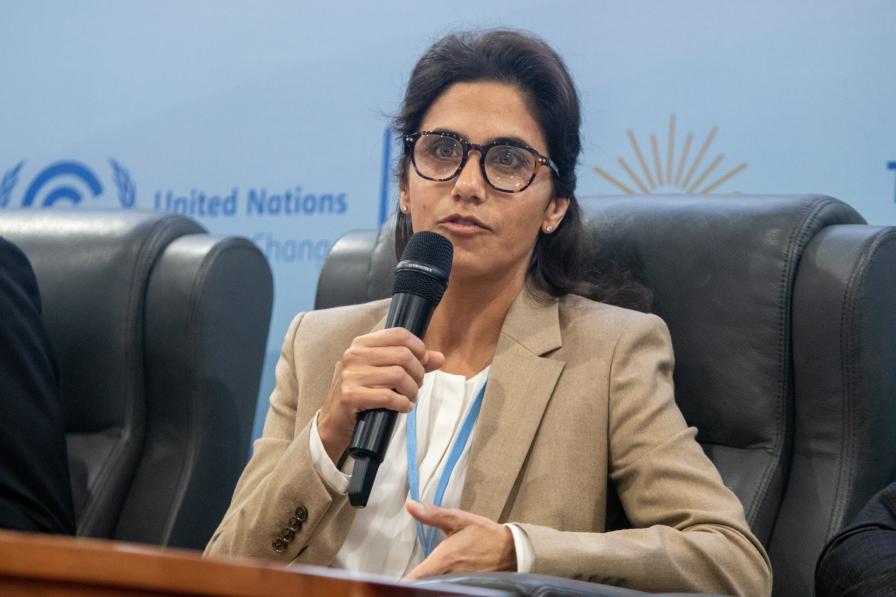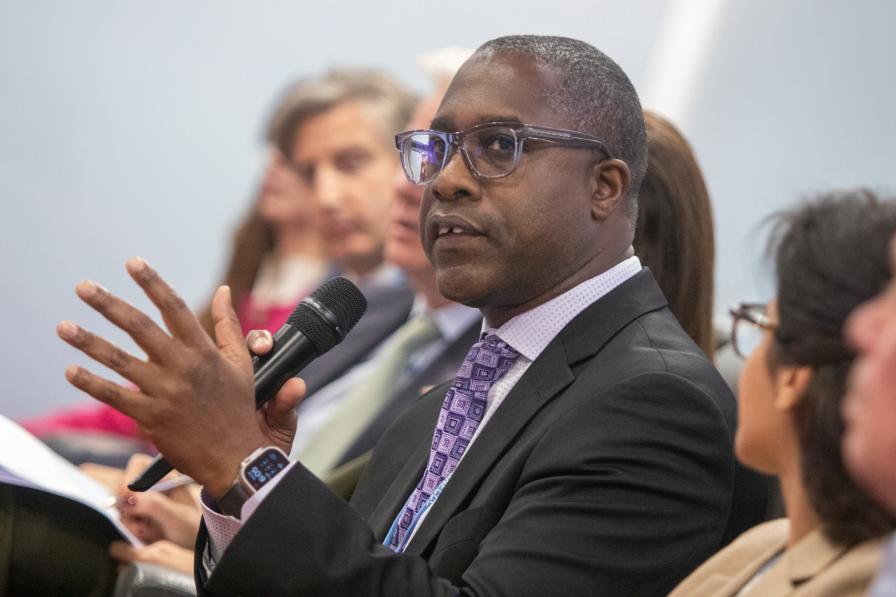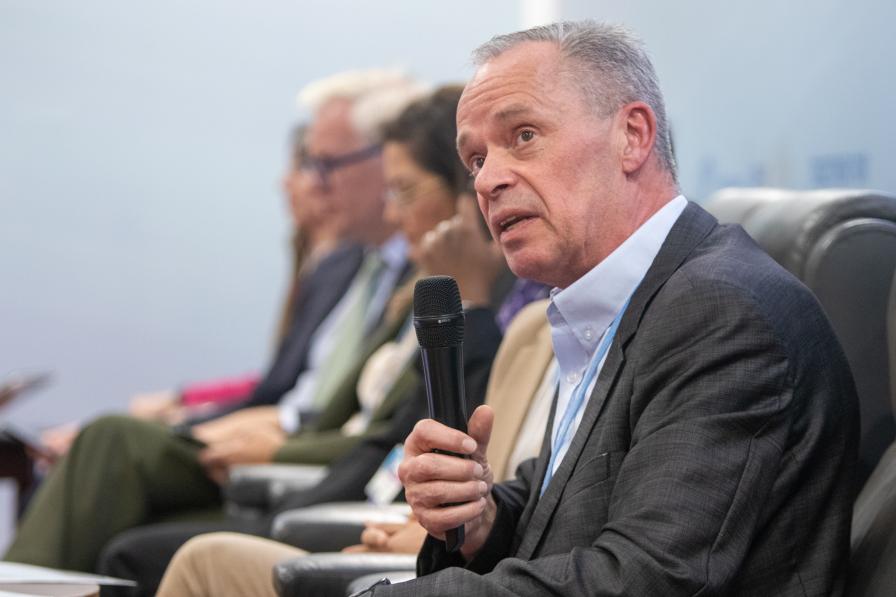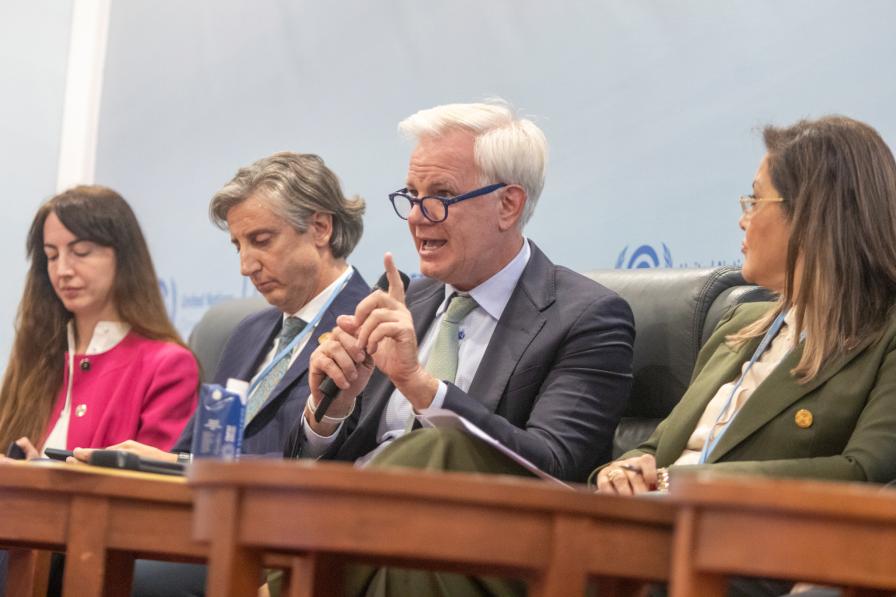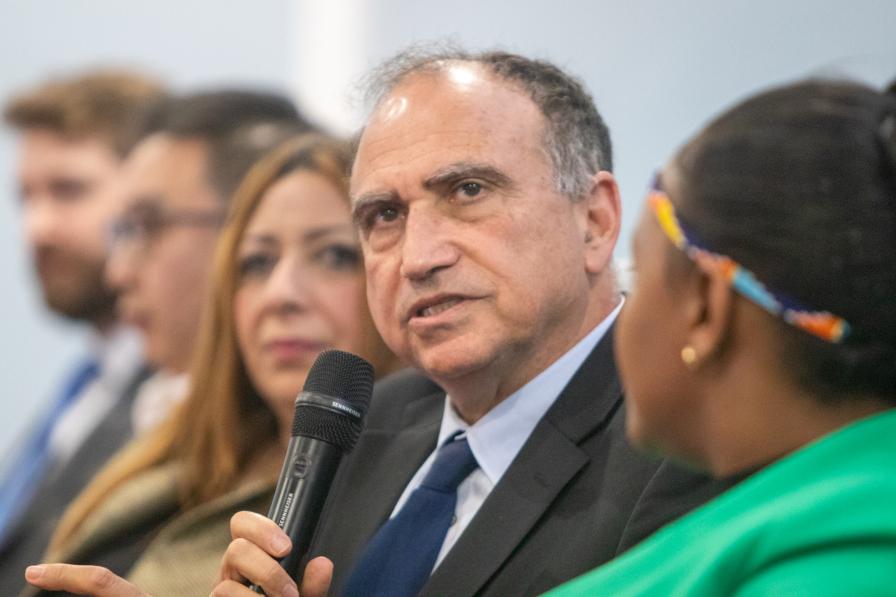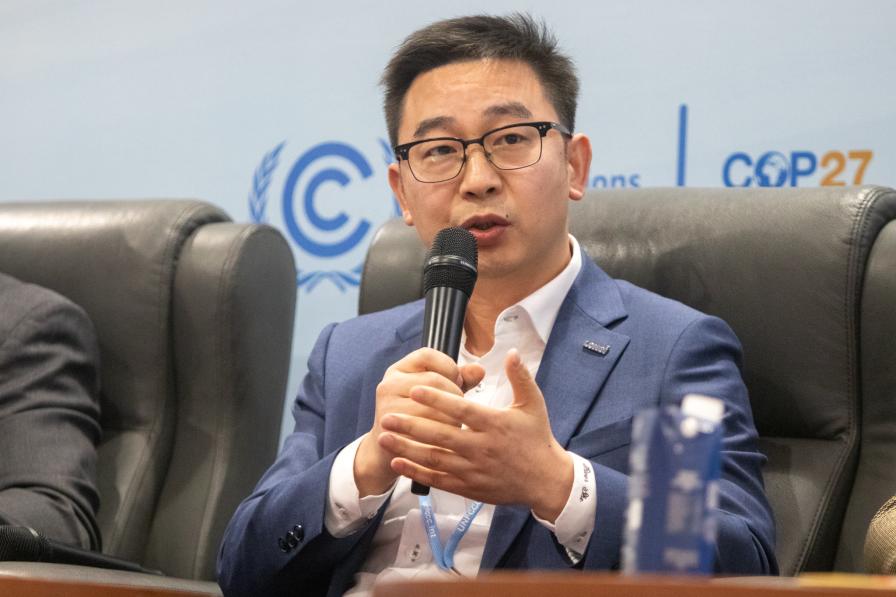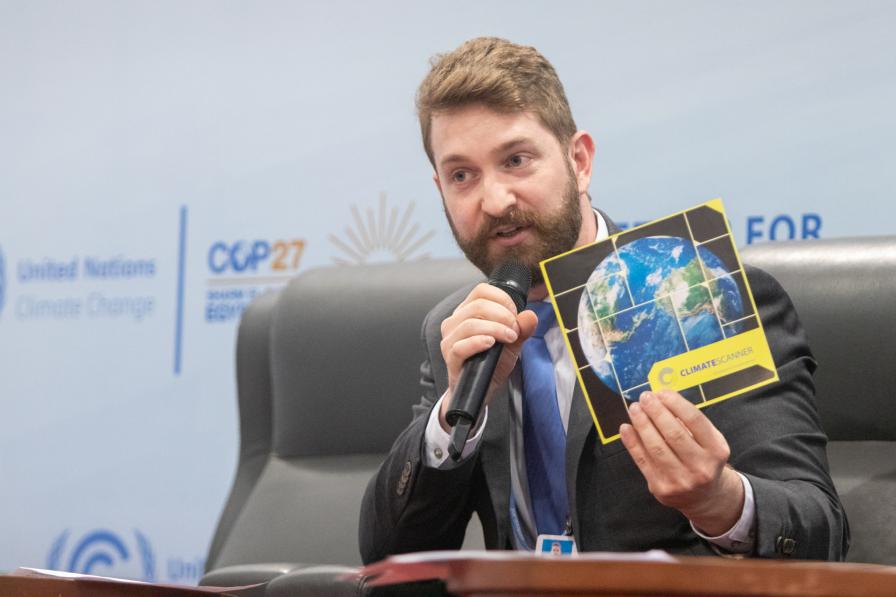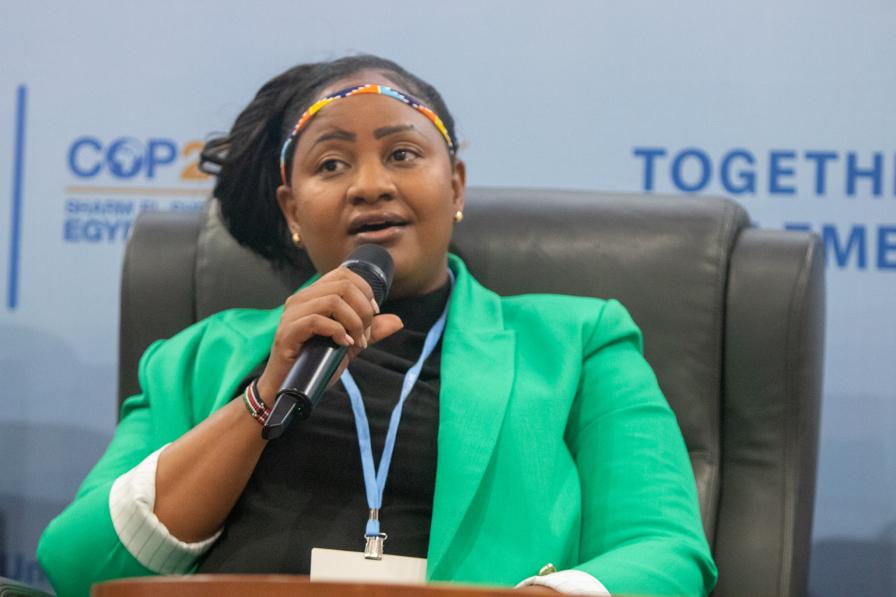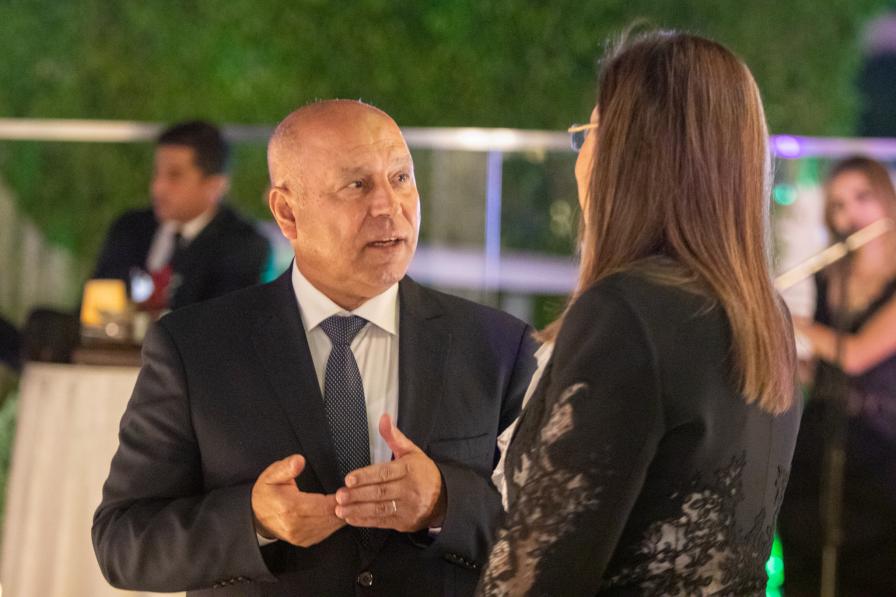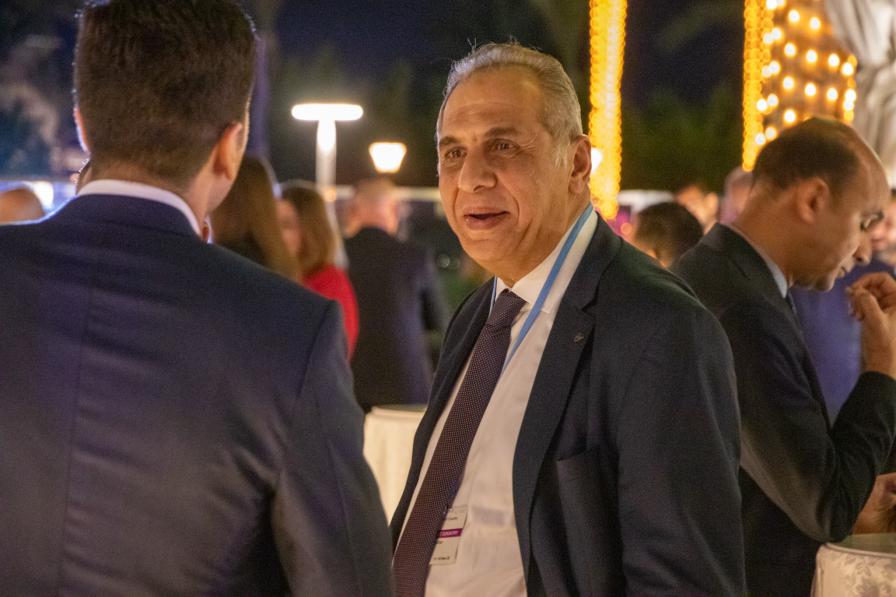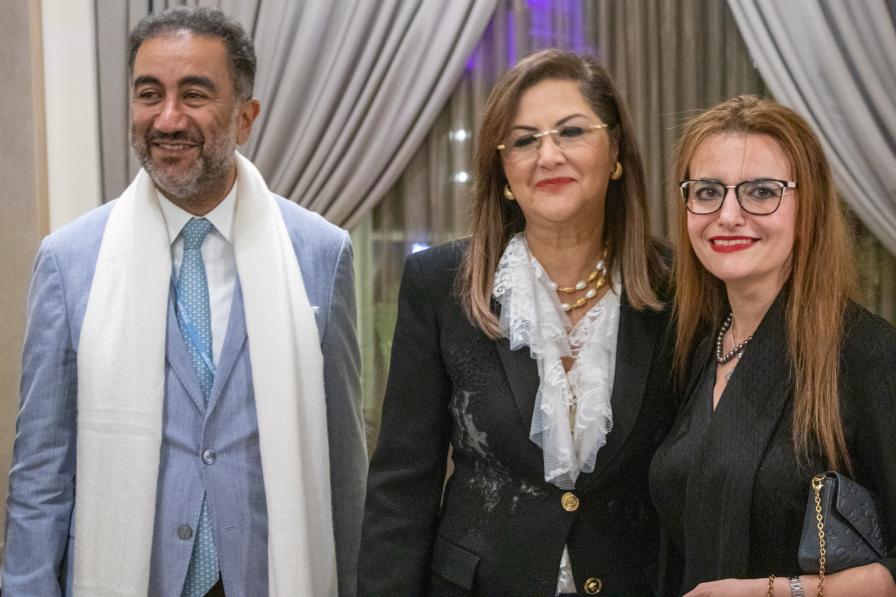About
Speakers discussed how the combined power of these sectors can close implementation gaps between commitments and actions to move the world forward in a just and equitable way.
Acting on climate change necessitates new ways of thinking about synergistic, cooperative efforts between the public and private sectors, as signaled by the COP 27 slogan, “Together for implementation.” This event, organized by the Ministry of Planning and Economic Development of Egypt and the UN Science-Policy-Business Forum (SPBF) in cooperation with Reuters, closed Solutions Day with a dialogue on how the combined power of these sectors can close implementation gaps between commitments and actions to move the world forward in a just and equitable way.
Shereen Zorba, Head, SPBF Secretariat, set the tone by highlighting the event as an “essential undertaking” for aligning private, public, and civil society roles in creating “a safer and more resilient world.” Moderator Axel Threlfall, Reuters, laid out key topics and themes for the event, including: developing policies that will empower investment; finding integrated solutions; locating resources for private finance; and doing all of this in a just and equitable manner.
In her opening remarks, Hala El-Said, Minister of Planning and Economic Development, Egypt, emphasized the importance of affordable and innovative financing in African and developing countries. El-Said highlighted the need for public-private partnerships, which can achieve breakthroughs to spread project costs, improve risk management and efficiencies, and undertake projects previously deemed unattractive or even impossible. She pointed to Egypt’s launch of the Sovereign Wealth Fund and changes in public-private partnership regulations, which have facilitated such partnerships.
Opening the first panel, Harry Verhaar, Signify, pointed out that taking action is good for the economy because it provides social benefits to the people and provides a better quality of life. However, there is a lack of investment and prioritization of infrastructure to pave the way for companies, he noted.
Layla El Hares, Siemens Energy, underscored the need for all sectors to work together, with the private sector having a role to play in providing technology and resources. She cited Siemens’ partnership with Egypt in converting the country to become an energy exporter.
Kareem Yusuf, IBM Sustainability Software, cited a “data problem” in addressing sustainability, pointing to unresolved questions about how to measure data, track progress, and implement benchmarking. Yusuf emphasized the need to focus on activities that will optimize operations while reducing risks, with sustainability being central to how IBM operates its business.
Gwenaelle Avice-Huet, Schneider Electric, underlined that companies need strong ambition to decarbonize a country. She also pointed out the need to engage with governments to better understand their commitment to sustainability, and for the private sector to provide them with the resources to reach those objectives.
Jay Collins, Citigroup, stressed that “debt for nature” swaps can be effective for retiring fossil fuels and accelerating adaptation. He highlighted the need to not just “crowd in” more capital, but “capital that takes more risk.” As potential ways forward, he pointed to addressing investment risks through insurance mechanisms and Multilateral Development Bank reforms.
Alessandro Fracassetti, UNDP, highlighted three key implementation areas: financing, of which, he said, too much is done by the public sector; technology, an area where the private sector has a major role to play and the public sector can help foster efforts; and capacity building, a main focus of the UN and its agencies.
El-Said closed the first panel by emphasizing the need to address private sector investment in ways that fit the specific contexts of different countries. She stressed that governments have key facilitative roles to play, while the private sector is best positioned to provide solutions.
Opening the second panel, Zorba urged more transparency from governments and the private sector. As things currently stand, she continued, reports submitted by both parties are not viable, and there is no validation process for private sector reports and a lack of transparency for government reports. She also emphasized the need for data integration to ensure transparency, but said the technology to accomplish this is not being deployed at the speed needed.
Yossi Matias, Google, said that new technology can lead to transformation and knowledge if accessible to everybody. Matias also emphasized the central role that startup technology companies can play in sustainable development efforts, and the need to mentor them.
She Haifeng, LONGi, shared the company’s achievements in the solar power industry and attributed the success of solar power to its cost-effectiveness and relatively easy implementation. He suggested that governments remove all subsidies for fossil fuels, and, instead, subsidize renewable energy sources. He also called for the liberalization of the renewable energy market, particularly regarding to solar power.
Adriano Martins Juras, Department of External Control–Agriculture and Environment Audit, Brazil, emphasized that governments play a key role in ensuring good governance in addressing climate change. His department’s role is to foster efficiency and effectiveness in creating the right policies and ensuring transparency, he said. He described the Climate Scanner project, which is a tool to evaluate governments’ climate actions and consolidate data on climate action from around the world.
Nicole Karimi, CEO, Antankara Group, underscored that government support is critical for start-ups and that access to finance and capacity building is needed in order to scale up small businesses. Karimi also pointed out the numerous challenges facing women who set up their own businesses in Kenya, noting women are in a “good space” as studies show that 90% succeed in start-up businesses.
Reflecting on COP 27 and closing the event, Zorba emphasized that conversations she has had during the conference suggest that negotiations are essentially over, and that what is needed now instead is greater reporting and accountability. Zorba concluded by noting that “long-term targets are achievable through the creation of short- and medium-term targets.”
Organizers: Ministry of Planning and Economic Development, Egypt, in collaboration with the UN Science-Policy-Business Forum and Reuters
Contact: Shereen Zorba | shereen.zorba@un.org
For more information: https://un-spbf.org/
To receive free coverage of global environmental events delivered to your inbox, subscribe to the ENB Update newsletter.
All ENB photos are free to use with attribution. For photos from this side event, please use: Photo by IISD/ENB | Matthew TenBruggencate.
